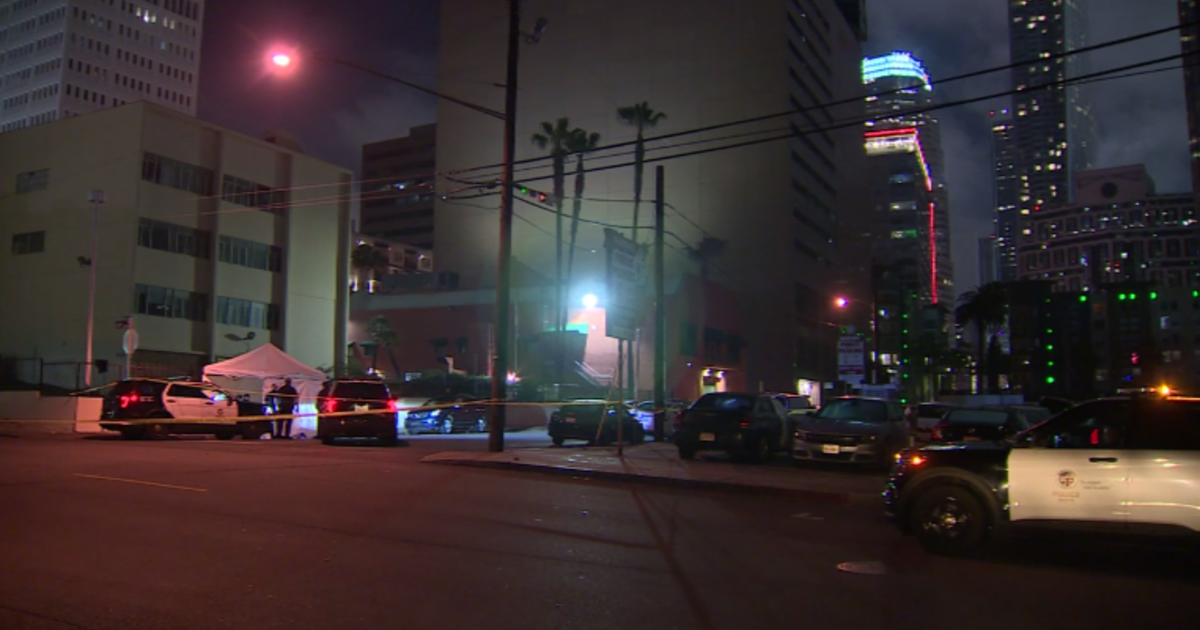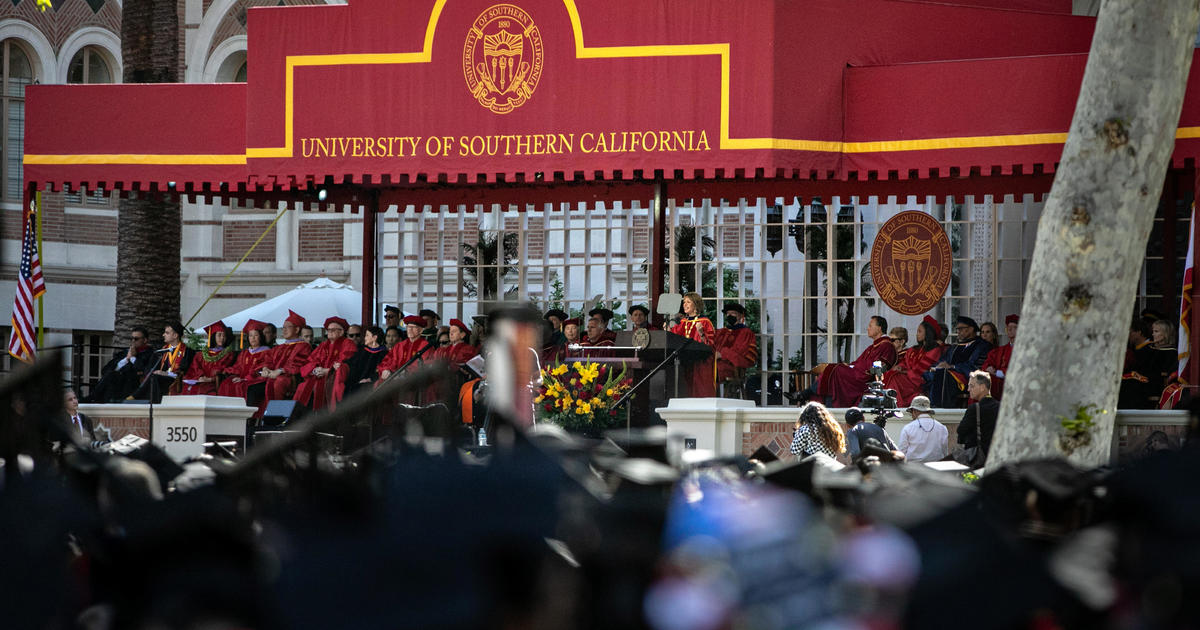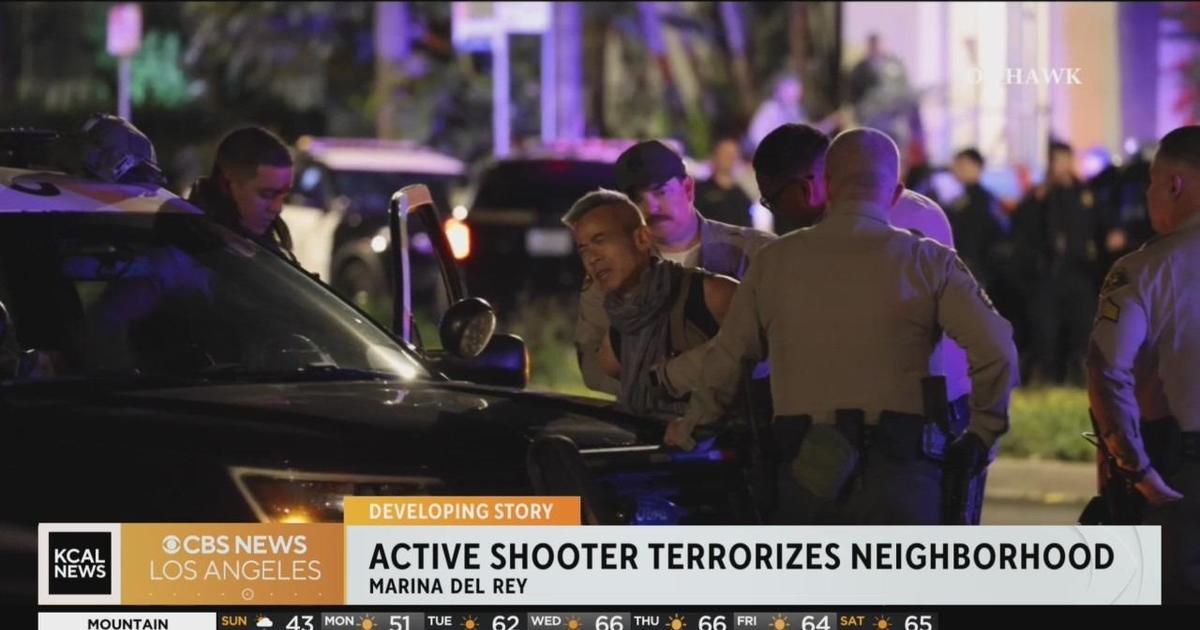Reputed Gangster Ran Almost Textbook Case Of Evasion
SANTA MONICA (AP) — Boston mob boss James "Whitey" Bulger did almost everything right in evading capture for 16 years.
The notorious mobster's run from the law was remarkable for its longevity, which was due mainly to the unremarkable new identity he built for himself while on the lam.
He adopted an unassuming lifestyle, paid for everything with cash, didn't drive a car, limited his social contact to small talk and adhered to the code of silence from the mob life he left behind. When federal agents tracked him to his lair this week, it was only after targeting the one part of his past that Bulger didn't leave behind -- his longtime girlfriend, Catherine Greig.
By all accounts, the two did little to ever arouse suspicion, posing as two retirees holed up in a bland white 1970s apartment complex in Santa Monica amid other buildings of the same era.
Although Bulger -- who fled Boston in 1995 after a retired FBI agent who had recruited him as an informant tipped him to a pending indictment -- was believed to have millions of dollars stashed in secret accounts, and investigators found $800,000 hidden in the apartment, the couple didn't live lavishly. They paid $1,145 cash several days in advance each month for a rent-controlled unit, while newer neighbors paid more than twice as much. Greig shopped at a 99-cent store.
Occasionally, they splurged, even while remaining discreet.
Andrew Turner, the general manager of Michael's, recognized pictures of the fugitives this week as the couple who dined occasionally at table No. 23 at the upscale institution. He had a record of them paying their $190 tab in cash for a meal that included Grey Goose vodka cocktails, foie gras, steak and lobster, topped off by wine, in September 2009 -- the month Bulger turned 80. The couple kept to themselves and were unassuming, Turner recalled.
"This guy was just nice, mild and meek, milquetoast in a little apartment in Santa Monica," said Bill Keefer, a retired U.S. marshal who supervised the witness protection program in Los Angeles, Hawaii and Long Island, N.Y. "This guy should have been a supervisor with the marshal's witness protection program. He did an outstanding job, the louse."
Bulger, now 81, has been linked to 19 murders, including the strangling of an associate's girlfriend who knew he was a snitch and the murder of a man shot so many times his leg was almost severed from his body.
His flight in 1995 was big news at the time. In addition to Bulger's indictment for racketeering along with other major mob figures, questions were raised about his ability to always be one step ahead of the law and because his brother, state Senate president William Bulger, was one of Massachusetts' most powerful politicians.
His fugitive status only grew when the FBI was forced to acknowledge in court two years later what had been long-whispered in law enforcement: the Boston FBI bureau had a corrupt relationship with its informants. An associate testified in 2002 that Bulger boasted that he had corrupted six FBI agents and more than 20 Boston cops, keeping them loyal with Christmas envelopes stuffed with cash.
Between the time of his flight and settling on the West Coast, Bulger had about two years to reinvent himself.
In the fall of 1995, the couple checked into a hotel as "Mr. and Mrs. Tom Baxter," according to an FBI affidavit unsealed this week. They spent time on New York's Long Island and lived six weeks in a two-bedroom apartment in the fishing village of Grand Isle, La., in 1996.
It's not clear how far they roamed, but their travels ended in this sun-splashed beach city about 15 years ago when they moved into unit 303 of the Princess Eugenia apartments as Charles and Carol Gasko.
As they reinvented themselves, Bulger and Greig stuck to a low-key lifestyle that didn't invite attention. They didn't appear to have visitors, never spoke of family and limited conversations to superficial chit chat.
Neighbors said they stuck close to home, walking to the nearby Third Street Promenade, the city's outdoor mall, or strolling along the Palisades Park, a ribbon of grass and trees that runs along a bluff overlooking the Pacific Ocean a few blocks from home.
Greig was the more outgoing of the two while Bulger was sometimes cranky and reclusive. Barbara Gluck, a tenant down the hall, described Greig as sweet and lovely. They would chat pleasantly until Bulger barked at Greig to stop talking with her.
"It was like she was hanging on to a time-bomb," Gluck said. "At one point, she said, `He has a rage issue."'
Others said the couple went out of their way to ingratiate themselves while also maintaining a distance.
Bulger, once known for kind acts in South Boston that were in sharp contrast to the viciousness of his alleged crimes, helped a young mother carry grocery bags to her apartment and offered a flashlight to a building employee at night. The couple sent a sympathy card when a property manager's father died. They left gifts of fruit for an elderly resident. Greig befriended dog owners on the street.
"They were good neighbors," said Catalina Schlank, 88. "I will miss them."
Bulger's wealth helped him maintain independence from family or former criminal allies who might have given away his location, said retired FBI agent Scott Bakken, who worked the Bulger case for a short time in 2002. With a $2 million bounty on his head, Bulger had little incentive to touch base with anyone in his old South Boston neighborhood, particularly after it became clear he had broken the code of silence and ratted on rivals and allies alike.
"Here you have somebody who is far more sophisticated than some 18-year-old who killed someone in a drive-by," said Bakken, the FBI agent. "To be a successful fugitive you have to cut all contacts from your previous life. He had the means and kept a low profile."
The couple melted into the background in Santa Monica, a sunny, beachside playground that attracts aging sunbirds, families and a hip younger set to its wide beaches and famous pier punctuated by a colorful Ferris wheel, shops and food shacks.
The dynamic city of nearly 85,000 just miles from Los Angeles may also have been an ideal location to hide in plain sight, said Jack Cluff, a former U.S. marshal in Idaho who was involved in the deadly standoff with fugitive white separatist Randy Weaver at Ruby Ridge and helped bring in the 1970s Russian spy Christopher Boyce.
Many fugitives get caught because they hole up in a remote location where locals get curious or where they get cabin fever and spill their story to the wrong person, Cluff said. Others are brought down by informants or because they've run out of money and connections -- problems Bulger didn't have because of his wealth and fearsome reputation back home.
While Bulger had several fake identifications, he didn't have a car to run the risk of a traffic violation or accident that might lead to the discovery of his true identity.
His thick white beard had also dramatically changed his appearance from his Boston days and the photos the FBI circulated publicly for years.
"You see him on TV compared to what he looks like really and man, I'll tell you what, he's going to walk right past me and I'd never blink an eye at him," Cluff said. "He'd really changed, with the full beard and what have you."
In the end, however, there was one way in which Bulger was like almost every other fallen fugitive. About 85 percent of apprehended fugitives are brought down by a girlfriend or former girlfriend, Cluff said.
After many failed efforts to net the couple, including searches in 19 countries and a campaign to reach out to plastic surgeons who may have altered their appearances, the FBI this week tailored their latest campaign at Greig, 60, who is wanted for harboring a fugitive.
Public service announcements were aired during programs aimed at women that asked for information leading to Greig's whereabouts. They pointed out that Greig, a dental hygienist, was known to frequent beauty salons and have her teeth cleaned once a month.
The ads weren't aired in Los Angeles, but news coverage produced a tip that led agents to the Gasko apartment. A call was placed to Bulger telling him someone had broken into his on-site storage unit.
He fell for the ruse. When Bulger went to check on his property, agents were there to take advantage of his first misstep in long a run from justice.
"I always used to say, `If I don't catch `em today, I'll catch `em tomorrow," Keefer said. "But to 15 years, that's really, really a `wow' thing."'
(© Copyright 2011 The Associated Press. All Rights Reserved. This material may not be published, broadcast, rewritten or redistributed.)



